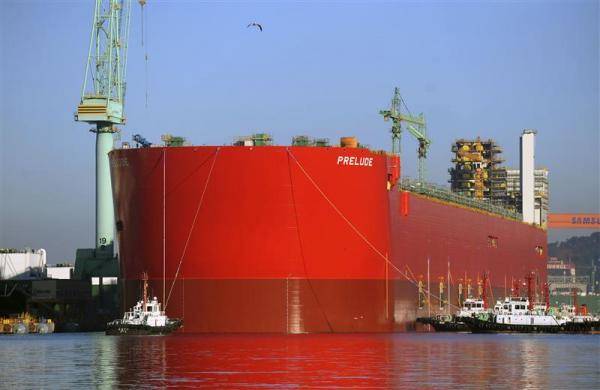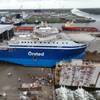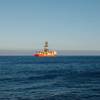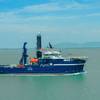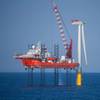DW: Prelude to a $60B FLNG Growth Story?
Following first steel cutting in late 2012, Shell’s Prelude Floating Liquefied Natural Gas (FLNG) unit continues to take shape in Samsung’s Geoje shipyard in Korea, Douglas Westwood (DW) said in its Monday report.
At 488 meters long by 74 meters wide and with an LNG processing output of 3.6 million metric tons per annum (mtpa), its specifications are impressive; but what DW said is perhaps more interesting is that the Prelude unit has the potential to be a gamechanger, indeed Shell’s boss at the time ranked Prelude as his most important strategic decision. Prelude, along with several other near-term projects, forms the vanguard of a global FLNG vessel market that could be worth more than $60 billion from 2014-2020 according to DW’s latest publication on the subject.
Shell’s interest in FLNG has been driven by both the strong LNG market fundamentals, and the challenges associated with construction of large onshore liquefaction schemes, especially where promising gas fields are located far from shore. Shell and its technology partners have taken an approach to the design which allows modules to be added and subtracted based on the expected fluid composition, DW reported. For example, Prelude is a rich gas field, meaning the liquids content is relatively high, necessitating processing and treatment modules to monetize these valuable associated products. With a leaner gas input, these modules could be replaced with additional liquefaction capacity allowing processing of 6 mtpa of LNG.
Of course, being “serial #1” contains a number of challenges, including the costly upfront engineering time and the contract interface risks associated with managing such a complex project. In addition, standardization arguments tend to be viewed with some skepticism within the industry, DW added. External factors also impact on FLNG projects including the potential loss of economic benefit to local communities linked to siting the LNG production offshore. Balanced against these downside issues, Shell and its peers have the ability to make this kind of mega-project work, as well as the obvious requirement to book new reserves in increasingly challenging conditions.
douglas-westwood.com





